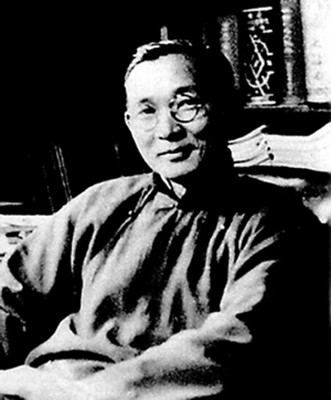For such a quiet studio, one should have wut'ung trees in front and some green bamboos behind. On the south of the house, the eaves will stretch boldly forward, while on the north side, there will be small windows, which can be closed in spring and winter to shelter one from rain and wind, and opened in summer and autumn for ventilation. The beauty of the wut'ung tree is that all its leaves fall off in spring and winter, thus admitting us to the full enjoyment of the sun's warmth, while in summer and autumn its shade protects us from the scorching heat." Or as another writer expressed it,one should "build a house of several beams, grow a hedge of chin trees and cover a pavilion with a hay-thatch. Three mow of land will be devoted to planting bamboos and flowers and fruit trees, while two mow will be devoted to planting vegetables. The four walls of a room are bare and the room is empty, with the exception of two or three rough beds placed in the pavilion. A peasant boy will be kept to water the vegetables and clear the weeds. So then one may arm one's self with books and a sword against solitude, and provide a ch'in (a stringed instrument) and chess to anticipate the coming of good friends. An atmosphere of familiarity will then invest the place.

凡靜室,須前栽碧梧,后種翠竹。前檢放步,北用暗窗戶,春冬閉之,以避風兩,夏秋可開,以通涼爽。然碧梧之趣,春冬落葉,以舒負喧融和之樂,復秋交蔭,以蔽炎爍蒸烈之威。 或如另一位作家所說,一個人可以“筑室數楹,編槿為籬,結茅為亭。以三畝蔭竹樹栽花果,二畝種蔬菜。四壁清曠,空諸所有。蓄山童灌園薙草,置二三胡床著亭下。挾書劍,伴孤寂,攜琴奕,以遲良友。”到處充滿著親熱的空氣。











